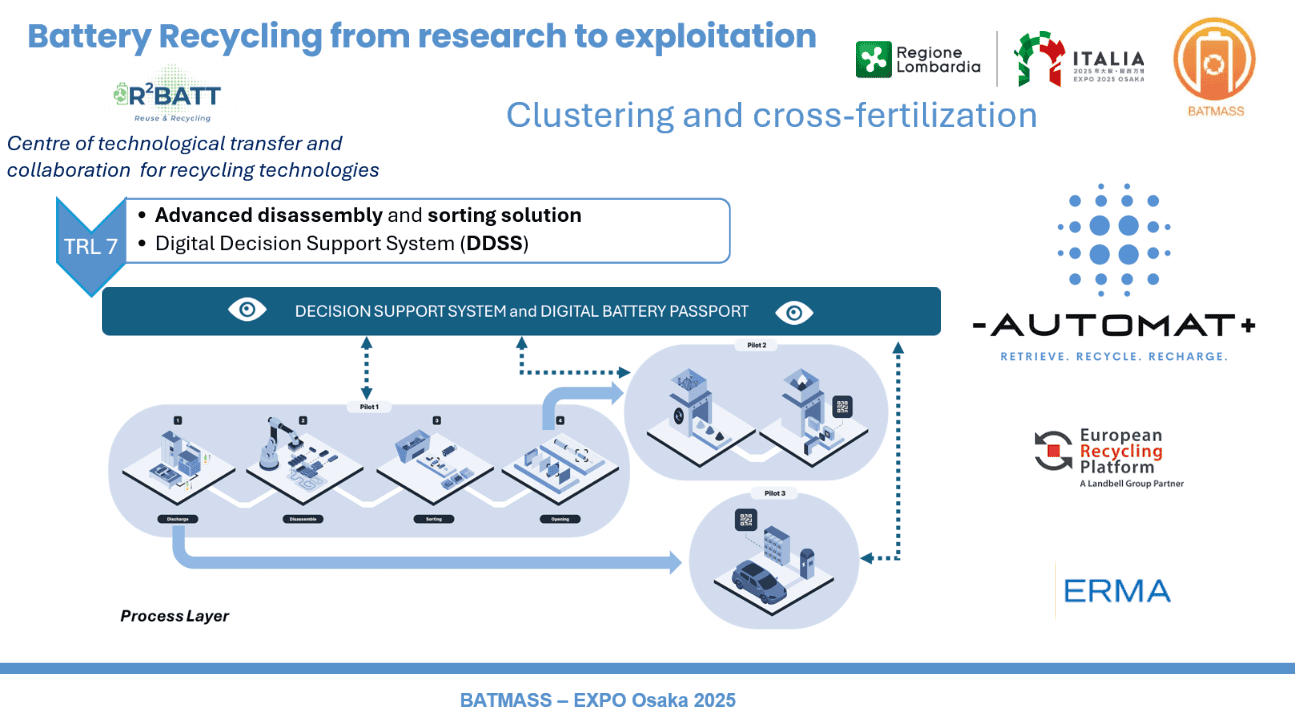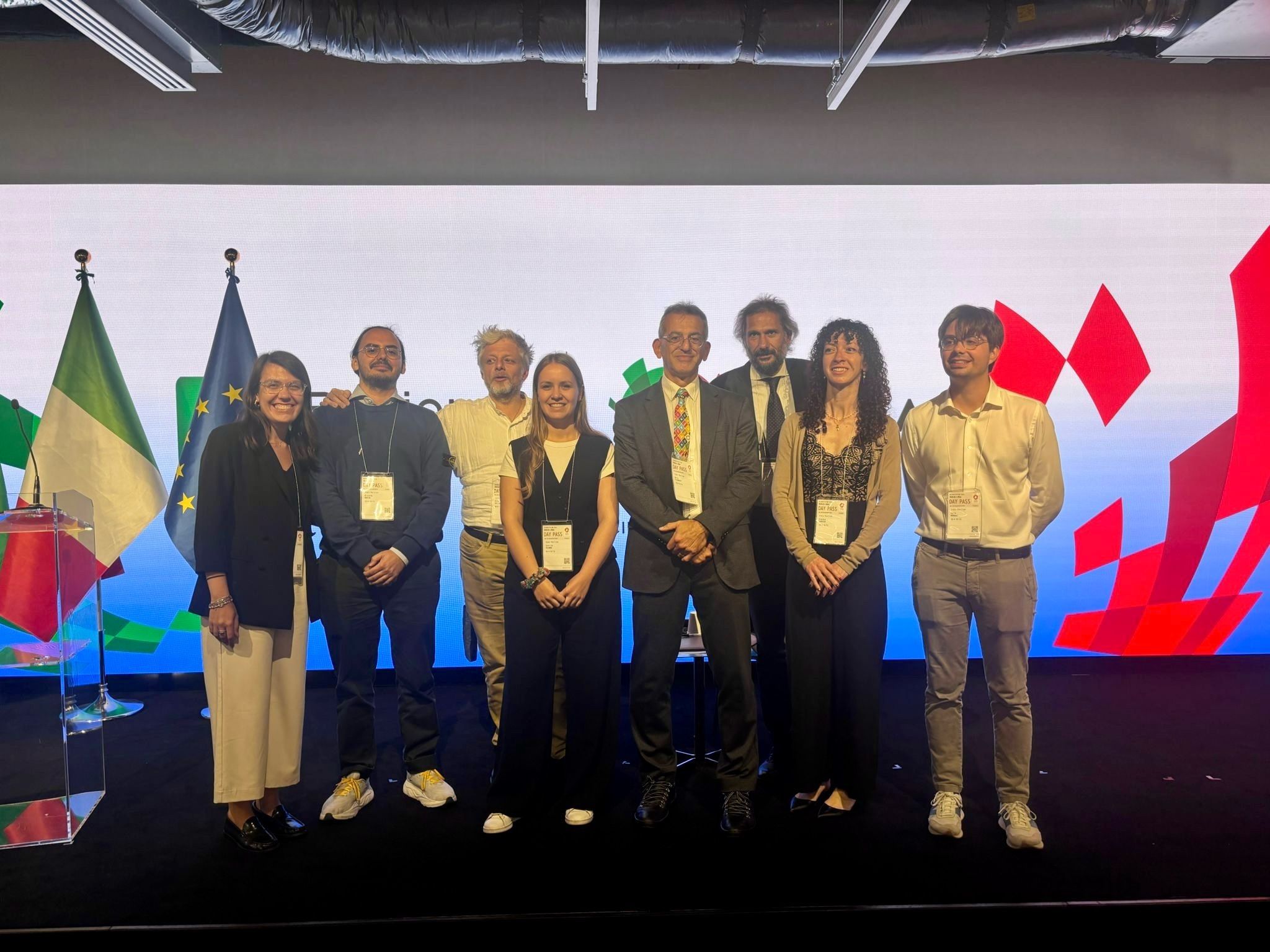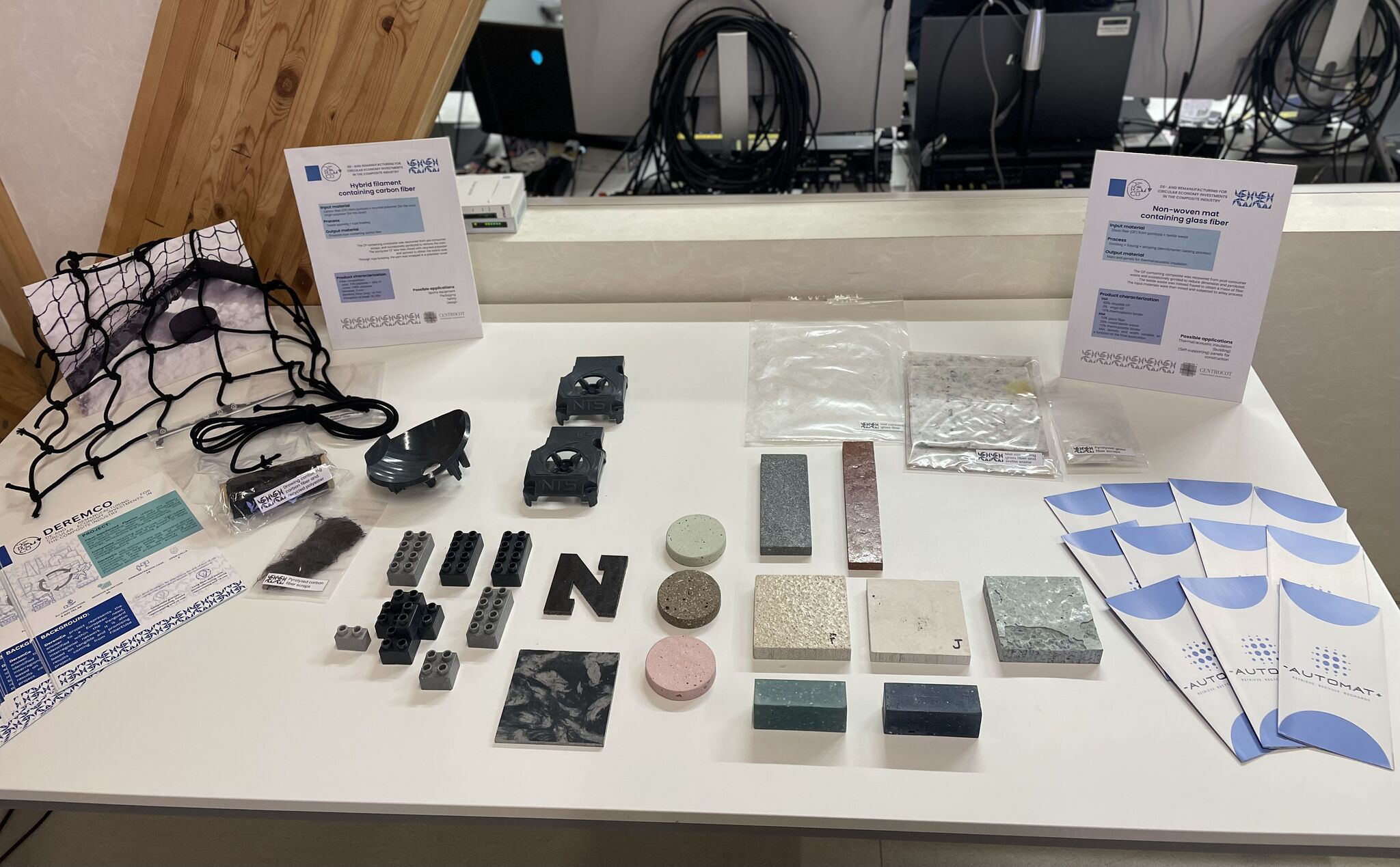AutoMat at EXPO 2025 Osaka: Sustainable Innovation in Critical Metals Recovery
On Saturday, October 11, the AutoMat project participated in an international dialogue on sustainable innovation in the energy sector at the meeting room of the Italian pavilion at EXPO 2025 Osaka. The presentation, delivered by Riccardo Morina (ERP Italia Servizi) with the scientific support of Professor Eliana Quartarone (University of Pavia), illustrated the new hydrometallurgical processes developed for the recovery of critical metals from spent batteries.
These processes represent a strategic lever for circular energy transition and reducing dependence on primary raw materials. During the presentation, data and results obtained by the R2BATT laboratory were shared, highlighting how innovative technologies enable efficient and sustainable valorization of materials contained in batteries, while reducing environmental impact and improving the safety of European production chains.
AutoMat and European Projects for Battery Recycling
AutoMat had the opportunity to showcase its project alongside two other European projects coordinated by Lombardy-based partners: RENOVATE (University of Pavia) and BATMASS (Politecnico di Milano). This exchange allowed to highlight the impact of technologies developed within AutoMat and the synergies with other projects in the field of end-of-life lithium-ion battery recycling, reinforcing the vision of an integrated ecosystem for the circular economy.
Thanks and Future Perspectives
We wish to thank AFIL – Associazione Fabbrica Intelligente Lombardia and Professor Marcello Colledani from Politecnico di Milano for the invitation and the opportunity to share experiences and vision with an international network of professionals, researchers, and innovators. Events like this demonstrate how collaboration between research, industry, and institutions is fundamental to building a more sustainable and competitive future. AutoMat continues to operate in this direction, contributing to the development of clean technologies and the transition towards an increasingly circular economy.



